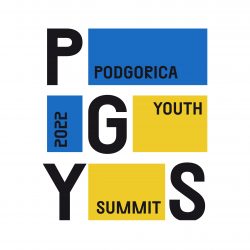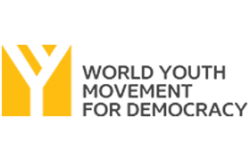Brčko Case: Is It Funny?
Charges against Čajević were filed on October 22 2018. So far, only one hearing was held – on May 28 2019. After that, because of technical difficulties in establishing video conference connection with the Brčko District Basic Court, as many as four hearings were rescheduled. On February 4 2020, a hearing was held in which brothers S. A. and M. A. testified via video link from the Brčko Basic Court.
In front of only four persons in the audience in Belgrade, S. A. testified how on May 10 1992, soldiers wearing camouflage uniforms took him from his home to the Interior Ministry building, from where he was transferred to the Luka camp. Along the wall of the warehouse in the concentration camp, he found 70-80 persons, including his brother and his father.
At the camp, the accused Čajević, for whom it cannot be said whether he belonged to the army or the police, ordered him and his brother to slap each other first and then made him put his brother’s penis in his mouth. Miloš Čajević forced brothers to alternately have oral sex with each other. And he laughed. And he brought others to watch. And to laugh. For S. A. that cruel game lasted forever. But S. A. survived and talks bravely about it today. After him, his brother M. A. talked about it, too.
Now stop. Think for a moment about how hard it is to talk about sexual violence in a patriarchal society. And then imagine how hard it can be to talk about sexual violence against men.
Sexual violence in war is targeted and systematic. Thanks to all those brave women before the International Criminal Court for Former Yugoslavia, it has been recognized as a crime against humanity.
S. A. continues and talks how the accused had put the knife under his throat and threatened to slaughter him, how he felt a little blood from his neck and how Čajević poured some juice on the floor and forced him to lick it from the carpet; however, he can’t say whether it was before or after the oral sex. The witness added that before the war he had good relationship with the father of the accused, Sreten Čajević, and how they often had had coffee together, while the accused was not on good terms with his father. After S. A.’s testimony, the accused said that he did not know anything of what the witness had said and that none of that was true.
M. A. speaks clearer than his brother. He describes how he slapped his brother lightly first, but the accused then showed him how it should be done by hitting him, whereby the witness flew over the table and crashed everything on it. When his brother came to help him, the accused shot at the radiator. He thinks that there were more than a hundred people in the camp and that slapping and oral sex lasted for some twenty minutes.
Asked by the presiding judge Zorana Trajković if they would claim compensation, both witnesses said that they only wished everything to be over. S. A. said that after his previous testifying he ended in hospital due to high blood pressure, while M. A. asked not to be abused again, because he had been summoned to testify for three or four times, but the hearings were postponed.
Brothers’ reaction speaks of how difficult and exhausting court proceedings are for victims and witnesses. In addition to having to relive what they wished they had never experienced, they are requested to do so several times. For this reason, as well as because of the shortcomings in the system for the protection of war crimes victims and witnesses (insufficient human resources, their lack of training and sensitivity), many are reluctant to appear before the court. As a result, many crimes remain unpunished and many stories untold. The Humanitarian Law Centre wrote about the improvement of the rights and position of victims and witnesses in war crime proceedings in Serbia in the policy paper published at the end of last year
The policy paper, inter alia, discusses a need for psychological support in all phases of the court proceedings, and especially before the hearing.
This type of support is essential, as it would prevent or at least reduce retraumatisation and victimization of victims. However, the Victim Support Service of the War Crimes Prosecutor’s Office does not have a psychologist. What is also observed is the importance of direct contact between the victims and the court, which could be made, e.g. at the meeting before testifying. Regular communication of the court with the victims, timely information on the course of the proceedings and consideration in addressing the witnesses, especially by defence counsel are some of the factors which would make the proceedings easier for victims. Finally, the conclusion is simple – victims are people and not “evidence” and they should be treated accordingly.
The next hearing in the Brčko case is scheduled for March 12 at 10 AM.















